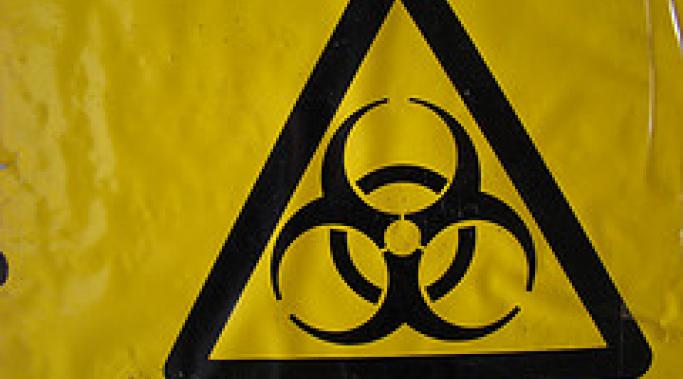Blogs
Today, while working in our family room, I kept detecting the smell of cat litter (used, not new). I couldn't imagine where it might be coming from and for a moment thought I might be losing control of my own senses--that is, until I went into the neighboring bathroom to throw away a tissue and found, tucked under the sink, a plastic bag chock full of Kitty Krunchies.
This would have irritated me considerably under any circumstances, but knowing less than 24 hours ago I specifically asked Bob "did you take it to the garage trash can AND put it in the trash can?" and he specifically said "YES", I was irritated considerably more.
I've heard too many stories of suicides of people told by their church that their problem was "sin" or the classic "If you just had enough faith..." . These aren't isolated incidents; they're a disturbing pattern. No one should be forced to gamble for their lives or perceived salvation. Religion and spirituality can heal. They can also hurt.
Childhood schizophrenia can be very difficult to diagnose. It mimics other illnesses and becomes even harder to distinguish if alcohol and drug abuse become part of the picture as well. Our guest on the HealthyPlace Mental Health TV Show, Randye Kaye, knows all about this firsthand.
Each year, approximately a quarter million people in the United States experience sexual assault and rape (What Is Sexual Assault?). An issue of such great importance is still often misunderstood and the road to recovery can sometimes be long. Our guest, Dr. Kathleen Young, helps us to better understand the process of recovery and why it sometimes takes a long time to recover from sexual assault.
Is panic emotional pollution?
Running on adrenaline, cortisol -the fear center of the brain staging neurochemical warfare on your nervous system- is the equivalent of climate change. It's dangerous. It's doing your whole system damage you can't even see: Forests for trees.
Anxiety: I can't stand it anymore
Anxiety alters the way our minds and bodies respond to stress so that it's harder, in the long term, to return to a state of calm and restfulness.
I can't stand it anymore. If you have an anxiety disorder, you know what I mean.
I’ve written about this several times, but never said it quite this directly: No one is a diagnosis. No one fits the criteria for “bipolar” or “depression” exactly. No one is a “Patient Like You.” It’s why someone only has to have five out of eight characteristics to be diagnosed with depression. Because there is recognition within the medical community that “depression” isn’t a single thing, much as “bipolar” isn’t a single thing. Those words represent diagnoses that exist along a spectrum.
In writings elsewhere I have suggested what I call a “dimensional” diagnosis. (And this is probably because I’m a computer science-y kind of gal.) Basically you have symptoms and diagnoses that exist along multiple axes. Then, depending on where the dots cluster, you essentially have a Venn diagram of diagnoses.
It’s OK if you didn’t quite follow that. I know. It’s complicated.
But humans are complicated creatures. I like chocolate ice cream, you like vanilla. Humans are a heterogeneous bunch.
Why then, if we understand this, do we have names in the first place? Is the term “bipolar” really even useful?
In short, yes, it is. And yes, we need those labels, even if they are ill-fitting.
I have a young friend who is 17 and must return to her home today under Department of Social Services' direction. Amy stayed with me the past few weeks as a runaway; she left her home two months ago. I visited the social worker at her school early on and tried to find a way to keep Amy safe. We looked into a group home, but Amy needs her parent's permission to go there. There is no placement for Amy, a 17 year old runaway. There is no help for her. The school honored Amy's request to keep DSS out of it for awhile. "Awhile" ended on Thursday.
Parents--answer this question: How many times today have I asked myself, "am I doing the right thing here?"
I'm guessing most of you answered "at least once." And if your child has a psychiatric diagnosis, I'm guessing your answer was closer to "at least once every half-hour."
On December 28, 2010, I started the process of recovering from anorexia nervosa. Many people ask how I was able to get started when I was going through a multitudes of stressors.
It really was very simple at its core—I woke up that morning, made my breakfast, and proceed to eat one bite at a time. It has been that way ever since.
If you’re in treatment for depression and have ever mentioned a desire to die, you’ve probably heard these questions:
How would you commit suicide?
Have you make a plan to commit suicide?
And others.
So a commenter recently mentioned that this is just a way of “covering their backs,” and “. . . if I were serious about killing myself and had made a plan, why on earth would I tell them?”
This is a logical question, but an uninformed one. In studies, we know that people who attempt suicide do reach out for help and do not really want to die.







